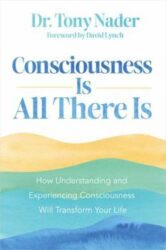Women and Heart Disease: A Risk at Every Age

According to recent research presented at the 2014 American Heart Association Sessions on quality of care and outcomes, young to middle-aged women may have worse long term outcomes after experiencing a heart attack than men do. The research showed that women will more likely have less mental and physical capacity and quality of life with more chest pain than men will experience. The study data was on women less than 56 years of age and extended a year after the incidence of a heart attack.
The disparity in the data between men and women suggests that other recent research is accurate—new gender specific examination methods, intervention, and treatment must be considered and implemented.
Risk factors for heart disease include pre-existing conditions including depression, diabetes, smoking and lung disease, and, of course, hypertension. Reducing stress and stress-related disease is paramount, especially in the life of a woman who has limited social support, low access to health care, and is in an socio-economic population that causes her to favor poor eating habits.
t has long been considered likely that women are protected from heart disease by hormones. However, even though women under 50 are much less likely to have heart disease than men of the same age, women who do have a heart attack are more likely to die.
Women of all ages need to be proactive about living a healthy lifestyle. Cardiologists are now praising the preventative power of the Transcendental Meditation program in this arena. TM practice can reverse or reduce atherosclerosis, cholesterol, chronic stress, depression, hypertension and smoking among other causes of heart disease. Dr. Abe Bornstein, MD, FACC, Assistant Professor of Medicine and Science Education at Hofstra and Fellow of the NY Academy of Medicine’s Division of Evidence-Based Medicine, stated, “These findings cannot be generalized to all meditation and stress reduction techniques.”
In fact, NIH funded research that was published in peer-reviewed journals showed that the TM technique, practiced regularly after proper instruction by a certified TM teacher, can reduce the recurrence of a heart attack by more than 60%.
As a nurse and a woman, I know for myself that it is vital to my health to do the TM technique and I heartily recommend it to all women.
About the Author
Amy Ruff, RN BSN, is the education director and director of TM for Nurses nationally in the United States.





